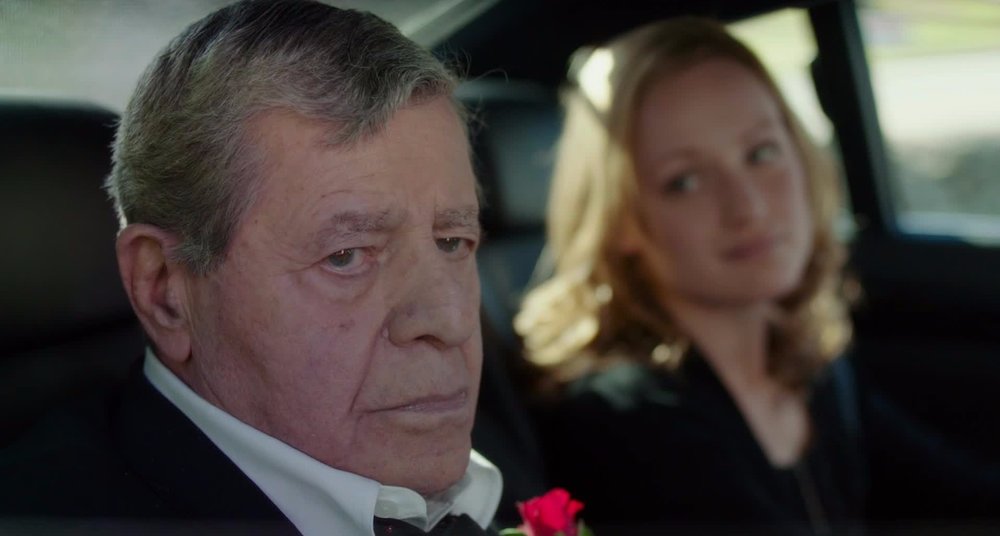
Bloom My Mind
Sometimes even film critics get under film critics' nerves. Case in point: twice in as many weeks, I made the mistake of looking up a film's Rotten Tomatoes score before deciding whether or not to watch it.* As you might imagine, holding down a family, a day job, and a nearly-full-time reviewing slate means my days are scheduled down to the post-lunch piss break. So when someone emails me with, "Hey, we'd love any coverage you might provide on _____!", I have to be very selective about what I nudge off the plate to make room for the unknown.
A few weeks back, I took a chance on The Sea of Trees, despite its 8% approval rating among RT's "Top Critics", and Nico Lang's ghoulishly brutal review in Salon, which claimed Gus Van Sant's latest has the "worst movie ending of all time". That's a serious charge, especially when bundled with accusations of cultural insensitivity on the part of the filmmakers and a scathing dig at the score. After watching the film, I arrived at two conclusions:
1. Nico Lang is full of shit. I give him points for apparently believing his own nonsense, but that doesn't mean I have to. Just because a Japanese character (who happens to be a ghost whose very existence is a metaphor) says his daughter's name is "Yellow", doesn't mean the filmmakers are guilty of "accidental racism".
2. I may not be cut out for film criticism. You'd think I'd have this whole thing figured out after seven years, but I still find myself baffled at how consistently I fail to align with my peers' consensus. What confluence of life experience and bad wiring has made me, legitimately, "The Last Guy Anyone Asks"? I don't know, but it's getting to be a bit much.
Which brings us, at last, to Max Rose. This one has a significantly higher Tomatometer score than The Sea of Trees, but 30% is still a far cry from good. The reviews I skimmed used words like "saccharine" and "contrived" to describe writer/director Daniel Noah's drama, but I couldn't resist seeing Jerry Lewis return to movies after being absent for over two decades. As I'm sure you've guessed, I really enjoyed the film, and once again find myself in the awkward position of defending something that apparently everyone hates.
Max Rose is the very definition of a "showcase", reminding audiences that the ninety-year-old Hollywood legend not only still "has it", but that we haven't seen nearly enough of "it" in recent years. For much of the film, I was, frankly, concerned that Noah had simply placed a camera in front of Lewis and directed him to be old, cranky, and trembly. But as the story sauntered from convention to introspection, I began to appreciate the measured layers of the actor's performance.
Lewis plays Max, an eighty-something jazz pianist who has just lost his wife, Eva (Claire Bloom), of sixty-five years. Before she died, he discovered a message engraved in her makeup compact: a note from a possible lover, dated more than fifty years ago. Max had already been depressed about a career that never took off and a strained relationship with the son he never connected with (Christopher, played by Kevin Pollak), but now even the rock-steady love of his life has become shrouded in doubt.
Max's granddaughter, Annie (Kerry Bishé), provides some much-needed company, even as she struggles with her own relationship issues. Her positive influence does little to soften Max's petty, irrational behavior, and Max soon finds himself living in a senior community, surrounded by much older people who've seemingly mastered (to his chagrin) the art of contentment. After having finally pushed away everyone and everything he's ever held dear, Max is left with no choice but to confront what he believes to be the source of his troubles.
Without giving too much away, the film's climax centers on a late-night chat between Max and Ben Tracey (Dean Stockwell), the man he believes stole his wife's heart five decades earlier. In Max Rose's meatiest ten minutes, Daniel Noah presents us with an epic battle for two men's souls; Rose and Tracey are deeply hurt people who have allowed jealousy and self-sabotage ruin the best things in their lives. This scene has a striking film-noir quality--driven partially by the actors, who seem beamed in from another era, and partially by the setting: an old-world-wealthy bedroom that could have belonged to Charles Foster Kane.
Noah's script is light on plot and more dependent on convenience than some might prefer, but the last fifteen minutes of Max Rose are some of the most honest and unexpected I've seen all year--full of the kind of unglamorous Big Life Stuff that mainstream films often can't be bothered to tackle in any honest way. In presenting us with a battle for the souls of two deeply hurt people, Noah reminds us of the everyday gifts we so often overlook because our eyes are fixed on some distant, elusive, and ultimately illusory prize.
So, yes, maybe it's time for me to stop worrying about how my opinions align with those of other critics. They didn't watch this movie or The Sea of Trees with my brain (and certainly not with my heart). In all its corny, saccharine, and contrived glory, Max Rose is a personal and moving film about acceptance, closure, and self-forgiveness. And it's definitely worth making space for on your plate.
*Yes, I check the Tomatometer. No, it's not pointless.

